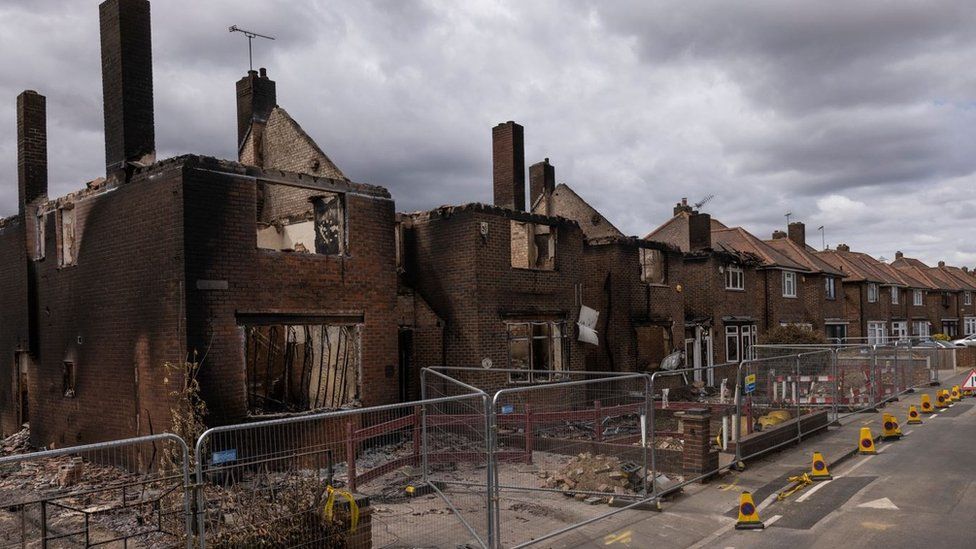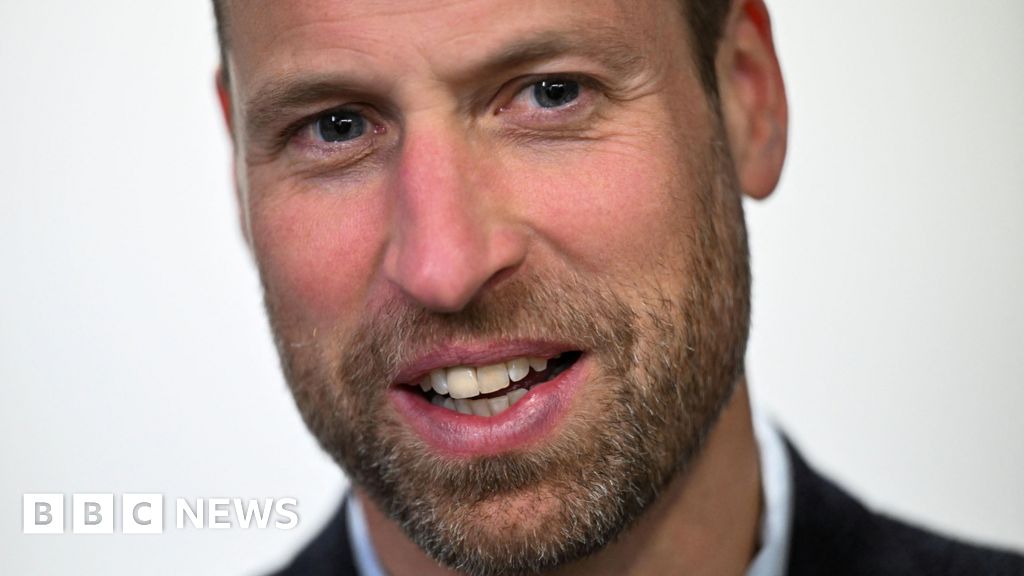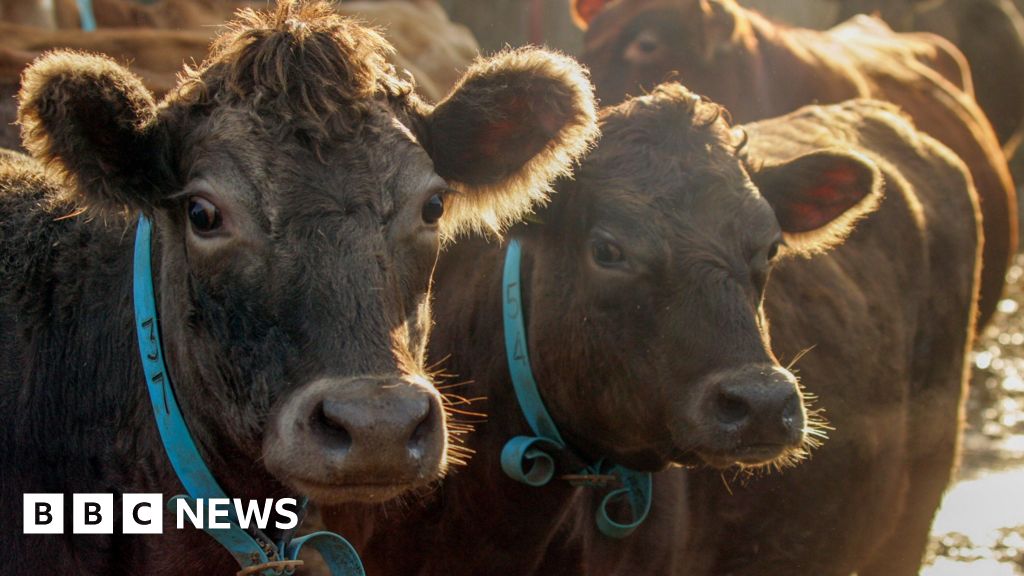 Image source, Getty Images
Image source, Getty Images
A number of wildfires broke out across London last summer, destroying homes in Wennington.
By Malcolm Prior
BBC News Rural Affairs producer
Firefighter shortages meant 39 fire engines were not available to help tackle the wildfires that burnt across London last July, a new report reveals.
The fires saw 16 homes in Wennington, Havering, destroyed in one of the blazes on 19 July 2022.
A major incident review of the London Fire Brigade's (LFB) response was published on Monday after a Freedom of Information request by the BBC.
A brigade spokesperson said the review would help them be better prepared.
Deputy commissioner Dom Ellis said: "We know last summer was not a one-off - climate change will continue to give rise to more extreme weather events.
"That's why we have reviewed what happened last summer to determine how we can improve and be as best-prepared to tackle this ever-growing risk head-on."
But Matt Wrack, the general secretary of the Fire Brigades Union (FBU), said firefighters were not being given "adequate resources... to do their jobs".
Image source, Leon Neal
Image caption,Firefighters responded with "bravery, tenacity and determination", the review said
The 19th July was said to be one of the LFB's "busiest days in the modern firefighting era" with 2,496 calls received - including 740 relating to wildfires - and 26 fires requiring four or more pumping appliances to attend.
The major incident review said staff had responded to the "unprecedented demand with bravery, tenacity and determination".
"Without this concerted and coordinated effort there is no doubt the damage to London's communities would have been much worse," it added.
But it found that 39 appliances were "off the run" - unavailable - because of insufficient staff numbers.
The caused "longer response times, an inability to resource specific incidents at the level requested by incident commanders and an inability to relieve operational colleagues at protracted incidents," the review stated.
'Negligence driven by cuts'
But it added that, given the unprecedented demands of the day, even if the brigade had the extra 39 appliances there would still have been difficulty in resourcing the fires and relieving crews.
The brigade now has a recruitment plan in place and has brought in new equipment for tackling future wildfires.
That includes a so-called "holey hose" - a new type of hose that creates a water curtain of up to two metres high along its length.
London's deputy mayor for Fire and Resilience, Baroness Fiona Twycross, said: "The new specialist 'holey hose' equipment being used by fire crews across the capital is part of the Mayor's ongoing investment, modernisation and transformation of the brigade to build a safer London for everyone."
- A PPE shortage - which meant there were 95 incidences where staff couldn't work - was caused because "the correct laundry processes were not being followed"
- Female firefighters were "disproportionately impacted" by PPE shortages and twice as likely to be "off the run" as a result
- The LFB did not have a fully qualified Wildfire Tactical Advisor (TAW)
- The brigade needed to do more to ensure its incident commanders could properly assess the resource needed to deal with wildfires and develop better tactical plans
- During the course of their work, the review authors found that "a resistance to reflection and review was evident in some areas" of the brigade.
Matt Wrack of the FBU said there was "a lack of national strategy and planning on issues like wildfires".
"Wildfires have been on the government's risk register for a decade, but they have failed to learn the lessons of last year's wildfires. This is negligence driven by cuts and complacency," he added.
The brigade said it was now creating 10 wildfire officers and 30 wildfire tactical advisors, who will be trained in the more rural areas of England where wildfires are more common.
The brigade has also been learning new skills and tactics from fire and rescue services in Europe.
LFB was just one of 11 fire and rescue services across the UK to declare a major incident on the day.
The National Fire Chiefs Council (NFCC) and the UK government are due to draw up new national policy guidelines on wildfires.
Meanwhile, those residents whose homes were destroyed in Wennington last year are still waiting for them to be rebuilt.
Havering Council said it was "working closely with affected residents to help them get their lives back on track".
Wennington vicar the Reverend Elise Peterson said the rebuilding of homes was "slow progress".
"There are residents that have lost everything and are still in temporary accommodation. It's been really difficult for those people. It's been a challenging year - the village has changed permanently," she said.
.png)
 1 year ago
7
1 year ago
7









 English (US) ·
English (US) ·